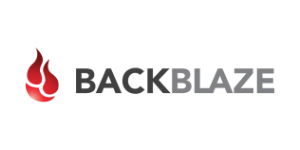Backblaze
Backblaze’s amazing story on how they pivoted their business to Storage Pods is a recommended read for sure.
Backblaze offers two products:
- B2 Cloud Storage: An object storage service similar to Amazon’s S3.
- Computer Backup: An online backup tool that allows Windows and macOS users to back up their data to offsite data centers.
Their pricing is competitive and publicly listed.
We have only listed the features of the b12 Cloud Storage solution, to make sure all providers on this site can be evenly compared.




